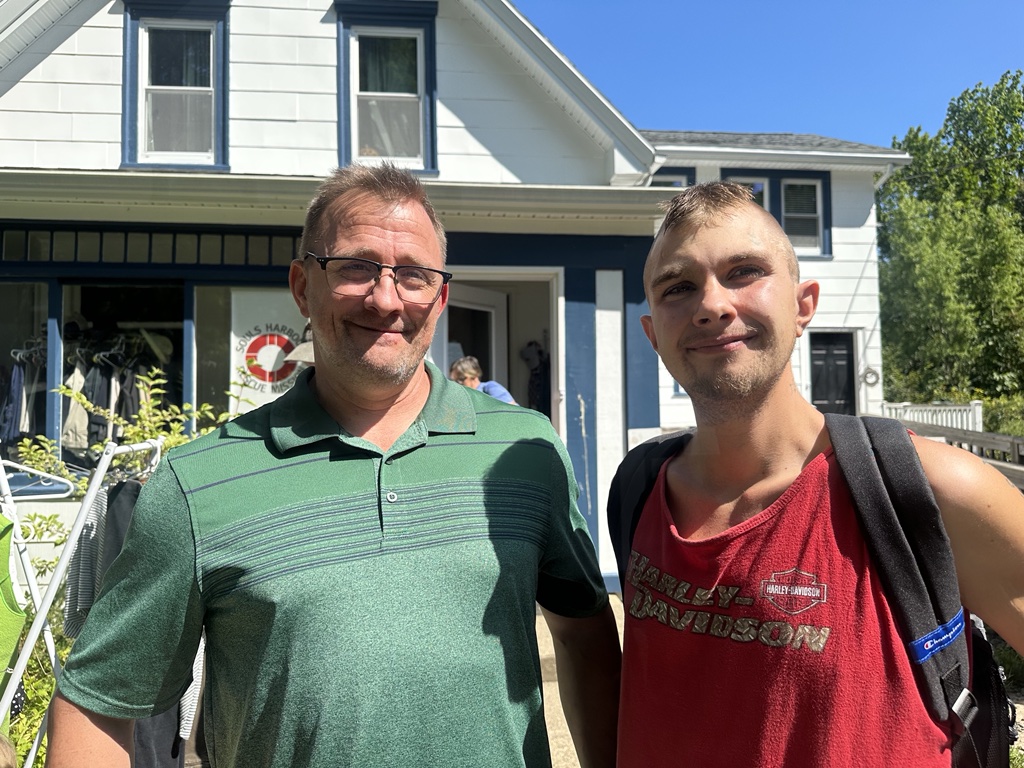The mayor of a small Nova Scotia town wants people to know that the housing crisis isn’t just a big-city issue.

“The struggle is real from coast to coast,” said David Mitchell, the mayor of Bridgewater, a community of less than 10,000 people on the province’s south shore.
“I’ve never seen a housing crisis like this. I don’t think any of us have seen the housing crisis like this. It’s not an easy fix, but obviously, we need to find solutions.”
Mitchell estimates there are hundreds of unhoused people in the area.
“We’re also the service centre for the region, so we have a higher population of unhoused people or people sleeping rough because they are accessing some of the services,” he said.
While the south shore has seen steady growth in the last couple of decades, it’s been struggling to adapt to the population boom the province experienced during the COVID-19 pandemic.
“Development has not kept up,” Mitchell said. “People are being displaced, whether it’s by renovictions, or the sale of a home that might have had a couple of rental units that is now just a single-family dwelling.”
One Bridgewater resident who lived in the town her whole life said community members are being priced out. The resident, who did not want to be named, said she’s concerned about the future.

Get breaking National news
“A lot of people are coming from Ontario and other cities where you can spend thousands of dollars on rent, but in a small town like Bridgewater, people can’t afford that,” she said.
‘No hope in sight’
The issue of homelessness and the rising cost of living is putting strain on local organizations who are trying to help.
In a statement, Kristi Tibbo, chief executive officer of the South Shore Open Doors Association (SSODA), said the rate of homelessness in Lunenburg and Queens County is rising “faster than ever before” — beyond what they, and other non-profits, can handle.
The association, which helps connect people to housing, is facing an unprecedented number of people in need, she said.
“The staff are working very hard to support the folks walking through our doors, while also supporting folks who have been waiting for housing placement for over a year,” Tibbo said.
“The caseloads have become increasingly hard to manage, and I fear daily about not being able to keep staff given the situations they are experiencing daily with no hope in sight.”
Tibbo said the housing crisis, coupled with inflation, is forcing people into “incredibly dire and unsafe situations,” where housing is increasingly unavailable, and the housing that is available may not be within people’s budgets or accessibility needs.
“The situation has forced many households to make heart-wrenching decisions: moms having to sleep in cars while children stay with families, seniors sleeping in parks, young adults sheltering in very precarious areas of town,” she said.
“This level of crisis always leads to community harm, and we are witnessing the harm within our community.
“We really need action now.”
John Christensen, the manager of the Bridgewater location of the Souls Harbour Rescue Mission, said local non-profits are “trying our best to pull together.”
“It’s been really difficult for people to find a place that they can afford, and that’s safe,” he said. “As much as we give food and we give clothing and stuff like that, it’s really a desperate time for a lot of people.”
He said in October of last year, Souls Harbour was giving out 15 meals a day. Now, it’s up to over 100.
“We’ve seen an uptick in people who are coming here who aren’t homeless, but everything goes to rent, and so they have no money for food, no money for extra stuff,” he said.
Mayor Mitchell said although housing is a provincial responsibility, the municipality is doing what it can to get more affordable housing units online.
But he said other issues that impact homelessness need to be addressed, noting that the community does not have 24/7 mental health and addictions supports.
“It’s not just housing, it’s all the supports that go with it,” he said. “And that’s what we’re desperate for across the province.”












Comments
Want to discuss? Please read our Commenting Policy first.